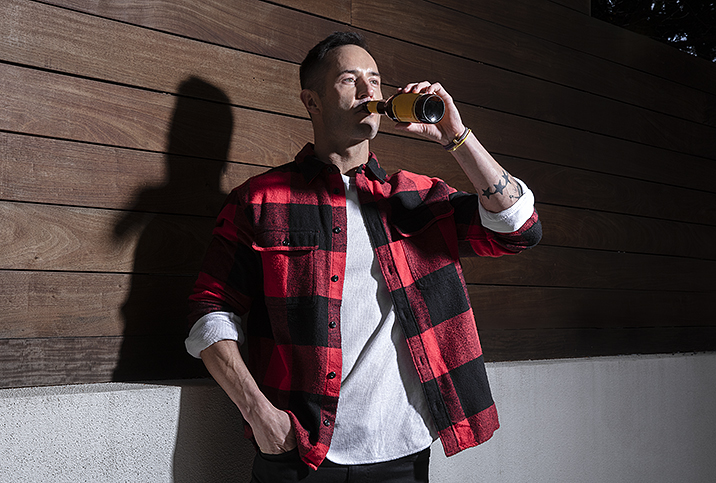Dating Someone Sober

Recovery from drug and alcohol addiction can be a challenging process to say the least. If that endeavor is paired with the difficult process of exploring or rekindling a relationship, it's even more delicate.
Active and passive practices
Relationships, at their core, are a series of active and passive practices we engage in with another person in an observable pattern.
A major aspect of recovery from substance abuse is the practice of actively breaking free from harmful pattern-based thinking and behaviors. For this reason, conflicts can arise in relationships between one sober partner and one who is not actively practicing recovery methods.
It can be difficult for people in a relationship to balance the process of recovery with the process of forming or fixing the partnership. Each partner must commit to open communication, as well as an awareness and understanding of the limitations that the other person might have.
Supermodel Susan Holmes McKagan shares details of her relationship with Guns N' Roses bassist Duff McKagan, who has been sober for decades, and how they talk to their two daughters about substance use. Watch the full interview here.
People in recovery
Dating is hard enough under usual conditions, but recovering from addiction or extended substance abuse certainly puts additional strain on romantic endeavors.
A lot of recovery programs actually provide specific guidelines for navigating new and old relationships while embracing a sober lifestyle. Some programs, such as Alcoholics Anonymous (AA), recommend that newly sober individuals wait at least a year before starting a new relationship.
If you are the sober partner entering a new relationship, is your romantic interest aware of your recovery process? You might find that a frank conversation about your experience with substance use and your sobriety goals moving forward reveal significant traits about your partner and the dynamic you share.
If recovery is important to you, it should also be important to someone who considers you important. Casual sexual experiences don't always require that level of consideration, but exclusive dating definitely involves an implication of shared concern.
It may be scary, but addressing your sobriety can reveal areas of shared interest or differences in intentions. Both aspects are tremendously informative while navigating a relationship and your recovery process.
Sex and sobriety
Though sex can be associated with any number of addictive behaviors, the relationship between sex and sobriety can often go overlooked by people who haven't attempted recovery. If your new partner is in recovery, it's important to recognize that sexual practices might be influenced by what your partner is going through.
Sex and substance use have a lot of overlapping biological and mental territory, as both involve physical and mental stimulation that can be habit-forming. If you haven't personally grappled with this struggle, you might feel resentful toward your partner's evolving attitude around sex as result of their recovery efforts.
Some people in recovery may have difficulty trusting others and themselves. Yet feelings of mutual trust and security are of utmost importance for sexual satisfaction between romantic partners. The best way to convey your own trustworthiness is to be consistently comforting and reliable for your partner.
Remember to take care of yourself, as your partner's recovery process may sometimes be difficult for you, too. You may find yourself stifling unmet needs in an attempt to be supportive, but by doing so, you're actually doing your relationship a disservice. Voice your needs kindly to your partner and work together to get what you both need. That would be best in the long run for both you and your partner.
If you find yourself feeling isolated or in need of your own support, look into local support groups such as Al-Anon, a support system that focuses on the partner that is not in recovery. Many other organizations can also give you a safe space as you navigate a partnership with someone in recovery.
No easy solutions
The simple fact is that navigating sex-and-sobriety territory requires hard work by all involved.
In many cases, this involves recognizing what doesn't work. No relationship is improved by ignoring or enabling the negative behaviors of one or both partners. If you or your partner's well-being is at risk due to struggles with addiction or the recovery process, it's important to set boundaries.
Loving someone in recovery, or loving someone while in recovery, is rarely easy. But if you work together and communicate open and honestly, the relationship can be fulfilling and amazing—and that's the goal.
















